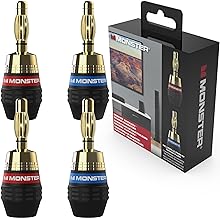When it comes to electronics, choosing the right multimeter is important. Making sure you have a precise and reliable tool is crucial for professionals and hobbyists alike. There are many options to choose from, so it’s important to consider factors like accuracy, durability, functionality, and ease of use. These factors will help determine how effective the multimeter will be in different electrical testing situations.
See our guide to the best hfe multimeter.
Accuracy
Accuracy is key when it comes to buying a good multimeter for electrical work. Whether you’re a hobbyist or a professional, having a precise multimeter can make a big difference in getting things done right. If the measurements aren’t accurate, you could misunderstand things, which could lead to mistakes, safety issues, or damage to equipment. Even though high-accuracy multimeters may cost a bit more, the peace of mind and reliability they offer are worth it in the long term. In the world of electrical work, accuracy isn’t just nice to have; it’s essential.
Having an accurate multimeter isn’t just about numbers but also about the quality and trustworthiness of the tool itself. In a time when efficiency and productivity are crucial, having a reliable multimeter that gives precise readings can make tasks easier and boost confidence in your work. Whether you’re fixing a circuit or calibrating electronics, accuracy is super important. By making accuracy a priority when choosing a multimeter, you’re not only ensuring the quality of your work but also showing your dedication to excellence and professionalism in every electrical job you do.
Features and functions
When choosing a multimeter, it’s important to look at both basic and advanced features to make it more useful. Accuracy and durability are essential, but things like auto-ranging, data logging, and safety features are also important. Having a multimeter with many functions can be very helpful, especially for professionals who need precise measurements.
A multimeter that can measure voltage, current, resistance, and capacitance makes troubleshooting easier and can make work more efficient. Choosing a multimeter with a clear display, comfortable design, and easy-to-use interface can make working with electrical systems easier. Finding a balance between basic and advanced features can improve accuracy and precision in your work.
Build quality and durability
When choosing a high-quality multimeter for electrical work, it is important to prioritize build quality and durability. A well-made multimeter can provide more accurate readings and last longer, making it a worthwhile investment.
A sturdy casing and well-designed internal components are key factors in ensuring that a multimeter can handle daily use, accidental drops, and different working conditions. By focusing on build quality, you can trust that your multimeter will consistently give accurate readings and reliable performance, giving you peace of mind during projects.
Durability is also important when selecting a multimeter that will last a long time. A durable multimeter can withstand frequent use without affecting its functionality or accuracy, ultimately saving you time and money in the future. Choosing a multimeter known for its durability allows you to concentrate on your work without worrying about it malfunctioning.
A reliable multimeter that is built to last not only increases productivity but also ensures that you have a dependable tool by your side for years to come.
Safety features
When thinking about buying an HFE multimeter, it’s important to consider the safety features. These tools are more than just gadgets – they are important instruments that need strong safety measures to protect the user and the equipment. Look for multimeters that have features like overload protection, fused current inputs, and good safety ratings to make sure you can use them safely and reliably. Buying a multimeter without proper safety features isn’t just risky, it’s potentially dangerous.
Safety features also show how good and reliable the multimeter is. A device with lots of safety measures means the manufacturer cares about the user’s safety and the product’s quality. It’s very important to think about safety when choosing an HFE multimeter to prevent accidents and get accurate measurements. Remember, a multimeter with advanced safety features might cost a little more, but it’s worth it for the peace of mind you’ll have.
Price and budgetary constraints
Purchasing an HFE multimeter can be tough when it comes to balancing price and quality. While choosing the cheapest option may be tempting, sacrificing quality to save money is risky. Opting for a mid-range or higher-priced multimeter ensures accuracy, reliability, and long-term value. It’s important to see this purchase as an investment in your work and safety, not just a simple expense.
Understanding that quality usually requires a higher price, it’s crucial to prioritize precision when choosing an HFE multimeter. Skimping on device features, durability, or safety can result in costly mistakes later on. By evaluating different models within your budget, you can find a good balance between affordability and quality that fits your needs. Remember that the overall cost of a product goes beyond its price – consider factors like warranty, customer support, and extra features when making your choice.
Conclusion
When it comes to working with electronics, the HFE multimeter is a must-have tool. It gives us accurate measurements and trustworthy readings that inspire us to explore and create new things. As we learn more about circuits and voltage, the HFE multimeter is always there to help us understand electrical systems accurately and quickly. Its many features and easy-to-use design make our technical projects easier and allow us to experiment with electronics confidently and accurately. Want more info on loose leaf green tea, check the best loose leaf green tea.

